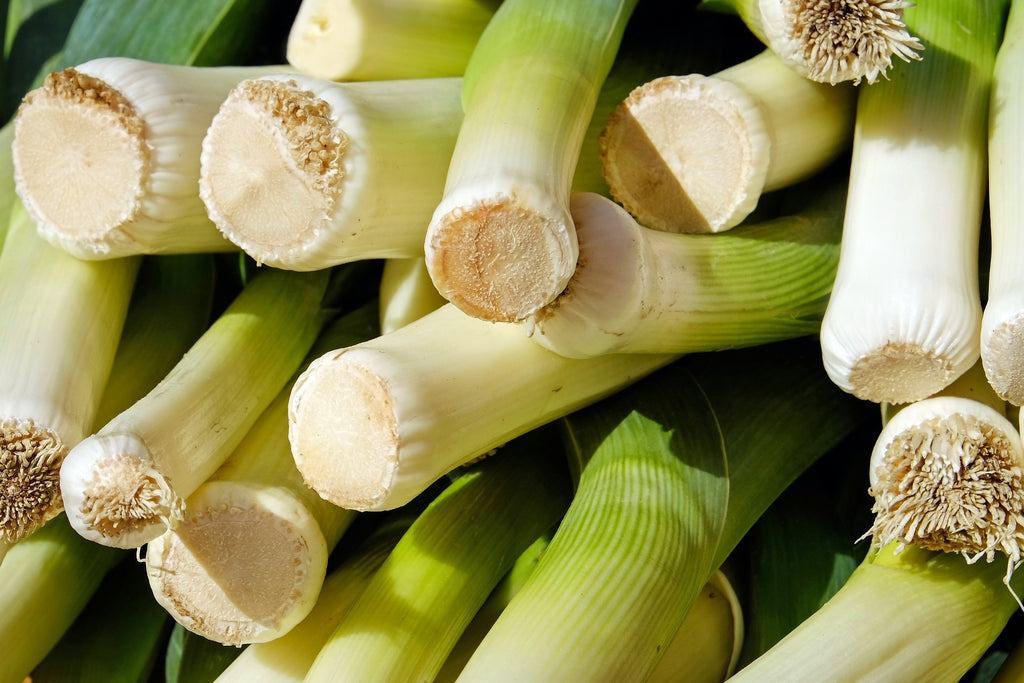Why Choose Non-GMO Seeds? GMOs, or genetically modified organisms, have been in the news for some time now, especially in discussions of health and the environment. Some say they�re necessary to feed the world, while others sound the alarm...
Why Choose Non-GMO Seeds?
GMOs, or genetically modified organisms, have been in the news for some time now, especially in discussions of health and the environment. Some say they�re necessary to feed the world, while others sound the alarm about their dangers. Sow True Seed is a signatory of the Safe Seed Pledge, which guarantees that we will never knowingly sell seeds that are genetically modified, or have been cross-contaminated with GM genetics. We�ve chosen to say no to GMOs, and here�s why.

What does GMO mean?�
�Genetically modified� means that foreign DNA has been introduced into an organism in a way that would not have happened in nature. This process is also known as bioengineering. The foreign DNA, known as transgenes, are typically transferred from one species to another in order to give the modified organism a trait it would not naturally have. Think corn that produces its own insecticide using bacterial DNA, or fish that glow in the dark using jellyfish genes.�
Why have GMOs become prevalent in agriculture?
The most common reasons for creating genetically modified plants are to introduce herbicide resistance or pest resistance to common commodity crops. These traits allow industrial scale growers to save money on labor or chemical inputs while increasing yields (at least in the short term - more on that later). For these reasons, GMOs are often touted as necessary to feed a growing global population. Crops can also be modified to be more nutritious than they otherwise would be, like rice that produces beta carotene which supports eye and vision health, or transgenic tomatoes that produce extra-high levels of cancer-fighting antioxidants. Some transgenes convey plant resistance to devastating viral diseases too. While it�s true that GM crops can produce some amazing results, we believe that the environmental and social implications largely outweigh the benefits.

What are the risks and downsides of genetically modified crops?
The problems with GMO seeds and food crops range from property rights to environmental damage, to potential human health risks.
GMOs Threaten the Rights of Farmers
GMO crops are patented by the companies that develop them, meaning farmers who grow the seeds must enter into a licensing agreement. If a single company patents an in-demand trait, this reduces competition in the seed market and drives up prices for growers. It also means that farmers can end up in legal trouble for saving any seed from their crop, or even if genes from a GM variety are found on their land when they never intentionally planted a GM crop. This type of uncontrolled GMO cross-contamination can also be a threat to farmers who export their crops to countries where GM crops are not approved.
This practice of patenting genetics and suing farmers is a direct contradiction to what Sow True Seed is all about selling only non-patented open-pollinated seeds that gardeners and farmers can grow, save, and share as they see fit without any legal implications.

GMOs Encourage Chemical Use and Can Harm Insects
Genetically modified crops that carry genes for herbicide resistance enable the use of more of those herbicides. Roundup Ready corn, one of the earliest GMO crops to go to market, was hailed as a miracle for growers who could liberally spray their fields with the weed killer Roundup at any point in the growing season, destroying all weeds in the field but not the transgenic, resistant corn. Another type of corn has been modified to carry genes for producing the chemical Bt, an organic-approved insecticide that kills soft-bodied insects like army corn worms and aphids. This would seem to be a positive thing, as it reduces the amount of insecticide used on fields, but it comes with an unintended consequence - there is evidence that pollen from Bt corn crops itself acts as a pesticide, and can harm caterpillars of important pollinators like Monarch butterflies when it drifts onto their host plants (and corn pollen can drift for a mile or more.)�
To make matters worse, these genetic traits for a particular resistance are often short-lived, as pest organisms adapt to the new chemicals, setting off a cycle of increasing chemical use in the field and/or diminishing yields for the GM crop. It�s a phenomenon similar to the overuse of antibiotics leading to the evolution of an increasing number of antibiotic-resistant diseases. In the case of Roundup Ready corn, its widespread adoption led to the rise of Roundup-resistant weeds within just a few years. This pushed growers into using more and more Roundup to kill the resistant weeds, or switching to other herbicides, some of which are even more harmful. When Roundup Ready cotton became essentially useless because of new Roundup-resistant weeds, farmers started switching to Monsanto�s dicamba-resistant cotton. Dicamba, an old herbicide that fell out of favor decades ago because of its extreme tendency to drift onto neighboring crops, came back into use in recent years, with predictable consequences. Dicamba drift onto non-GM fields has caused immense losses for some growers who chose not to plant the new GM seeds.�

Some Say GMO Foods Are Not Adequately Safety Tested
Though GMO foods are regulated by the FDA like other food products, many people worry that the crops are not subject to adequate testing for long-term health effects. The argument goes that GM crops have traits that are unlike anything humans have ever eaten in the past, and a few years of FDA study are not enough to fully determine their safety. Although the products are generally recognized as safe now, ultimately only time will tell if there are unknown and unintended consequences for human health in the long run.
Sow True Seed: Always Non-GMO
At Sow True, we don�t think farmers should be dependent on a few multinational companies to supply them with patented seed year after year, we don�t think they should have to face cross-contamination threats from crops they didn�t plant, and we don�t think you should have to worry about being a guinea pig in a long-term food safety experiment! We believe in farmers� and gardeners� right to save their own seed, we believe in following the lead of nature rather than relying on harmful synthetic chemicals, and we believe in everyone�s right to decide what�s in their food. That�s why we�ll never knowingly sell any seed that is genetically engineered, or contaminated by GMO cross-pollination. The unintended consequences of these crops are just too great.
�
|
Article Written by:�Leah Smith |
|
About the Author:�Leah Smith is the Seed Product Manager at Sow True Seed, where she focuses on adding new varieties to the catalog and ensuring the seed stock is top-notch. Her firsthand experience in farming has given her a deep understanding of cultivating crops while caring for the environment.� |
�










